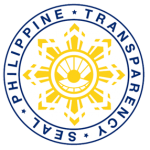Various government agencies have converged to implement the "Gatasang Kalabaw Kontra Kagutuman at Kahirapan" (GK3K) project, leveraging the carabao's role in sustaining livelihoods. The project aligns with President Ferdinand "Bong-Bong" Marcos Jr.'s commitment to achieving sustainable development goals focused on ending poverty and achieving zero hunger.
The initiative was officially launched at the grand opening of the Balungao GK3K Farm on April 29 in San Andres, Balungao, Pangasinan.
The GK3K project is a Program Convergence Budgeting (PCB)-Zero Hunger initiative of the Department of Social Welfare and Development-Sustainable Livelihood Program (DSWD-SLP) in collaboration with DA-PCC, other national government agencies, and select local government units. Its goal is to empower disadvantaged communities by establishing sustainable income streams through carabao-based enterprises.
DSWD Undersecretary for Operations Monina Josefina Romualdez said the DSWD is one of the agencies that helps combat poverty and hunger through its various programs, such as the SLP.
"Ang pangunahing layunin ng SLP ay palakasin ang kapasidad ng mahihirap o vulnerable sector upang magkaroon sila ng kakayahan na tumayo sa sarili nilang pangkabuhayan," she said.
Three-hundred indigent families who are beneficiaries of the SLP in Balungao, Pangasinan received PHP4.6 million seed capital from the DSWD for the project.
Under the GK3K program, the 12 associations will focus on carabao-breeding and carabao milk production in the first year of implementation and carabao milk, hide, and meat processing in the second year.
The local government of Balungao provided 10 hectares for carabao housing, forage area and vegetable production site, as well as other logistics and essential materials amounting to PHP4 million.
Balungao Municipal Mayor Maria Theresa Peralta emphasized the unified goal of ending hunger and centralizing programs for effective monitoring and support by local government units.
She shared that the Department of Environment and Natural Resources has allocated 312 hectares for their convergence project. Of this, 15 hectares have been allotted for the development of forage areas.
On the other hand, the DA-PCC at Don Mariano Marcos Memorial State University (DA-PCC at DMMMSU) has provided production supplies in addition to the two genetically superior bulls that will be entrusted to enhance breeding efforts. Recent training activities for 30 beneficiaries from 10 SLP associations were also conducted to improve dairy buffalo production and management skills.
The center is also committed to providing the services and interventions needed for the project to flourish.
Dr. Liza G. Battad, Executive Director of DA-PCC, highlighted the importance of collaborative efforts in ensuring the success of this project.
"Agkakadwa kami [nga ahensya ti gobyerno] nga tumulong kadakayo, ngem masapol nga agdecide kayo nga tulungan ti pamilya yo [All of the agencies unite to help you, but you must decide to help your families too]," she said.
Dr. Battad cited successful models like the multi-millionaire Bantog Samahang Nayon Multi-Purpose Cooperative to illustrate the potential financial benefits of engaging in the carabao-based enterprise. She also introduced DA-PCC's business models, including Milka Krem, Kardeli, and Dairy Box, among others.
She assured that the DA-PCC would remain readily available to provide assistance and pledged unwavering commitment to the convergence project.
Farm consultant and former Municipal Agriculturist Marilyn Lilagan is tasked with farm monitoring and providing technical advice to the beneficiaries.
The collaboration extends beyond local agencies. During a symbolic milk toast, representatives from the LGU, the Department of Agriculture, Department of Science and Technology, Department of Trade and Industry, Cooperative Development Authority, Philippine Crop Insurance Corporation, and the Commission on Population and Development showcased their united commitment to the project's success.
The event culminated in a ribbon-cutting ceremony for the animal facility led by Mayor Peralta, DSWD Usec. Romualdez, Regional Director Gopalan, and DA-PCC Executive Director Battad, followed by a tour of the GK3K farm facilities.
Looking ahead, Mayor Peralta expressed enthusiasm for the project's expansion, including additional housing and quarantine facilities planned for later this year.
Currently, the GK3K Farm is home to 56 carabaos being raised by the beneficiaries.












